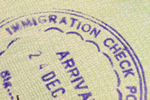Is going local the answer to your expat dream?

Is going local the answer to your expat dream?
One question which many would-be expats ask themselves is whether they’d be happier living a simpler lifestyle by going local and living outside the mainstream of modern existence. Living like the local people in your chosen destination, shopping where they shop, eating local foods and learning the local language have their attractions in this over-commercialised world, and living local means a far lower cost of living. Two destinations popular at the present moment are Chiang Mai in northern Thailand and Otavalo in Ecuador, both of which can be liveable between £500 and £600 a month, with Chiang Mai the preferred option for British retirees and Otavalo more suited to US pensioners.
For some retirees, going local and landing themselves squarely in a developing or even third-world ambience is just fine, but with others, especially Americans, it’s familiarity with the American dream in a ready-made expat environment and community which seems to work best. For the less than adventurous who need a packaged communal life on the cheap, it’s far less work to live in a destination in Ecuador or similar retirement hubs. However, for those who need to get away from the stress and commercialism of modern life, going local is preferable as well as more challenging.
Taking Chiang Mai as an example, it’s no surprise that the city itself now resembles a mock-up of high-rises, malls, supermarkets, traffic-choaked roads and tourist traps, with a few stunning traditional wooden houses sandwiched in between Asia’s take on 21st-century architecture. The city centre’s condo blocks are perfect for expats who want vaguely modern conveniences and all the culinary delights of home which, unfortunately, come at a high price in Western-oriented stores and restaurants.
However, driving 15 to 20 kms in any direction brings you to the real Northern Thailand, with its villages, rice fields, temples, scruffy local shops, amazing fresh fruit and vegetable markets, power cuts, slow internet and occasional floods. Learning the Bangkok Thai language doesn’t help too much, as the locals speak Lanna Thai at best and other local dialects at worst. It’s unfamiliar, a challenge and more, but it’s a different world and the right choice for expat retirees who need to live simply and understand that life isn’t all about conspicuous consumption.
Related Stories:
- Is Kuwaitization the unintended result of the oil price crash? - July 20, 2020
- Expats in Malaysia still banned from overseas travel - July 17, 2020
- HSBC Asia to cut back on internal expat relocations - July 16, 2020
- Tips on integrating for newly-arrived expats - July 15, 2020
Latest News:
- Tips on a trouble-free relocation as an expat overseas - July 20, 2020
- Expats find peace in the covid-19 refuge of Dahab town - July 20, 2020
- Is Kuwaitization the unintended result of the oil price crash? - July 20, 2020
- Expats unhappy abut changes to Korean points-based visa system - July 17, 2020
- Chiang Mai and Bangkok no longer bargain locations for expats - July 17, 2020
- Expats in Malaysia still banned from overseas travel - July 17, 2020
- Vietnam welcomes expats to its safe, affordable lifestyle - July 16, 2020
- Asian tiger economies reach out to expats in Hong Kong - July 16, 2020
- HSBC Asia to cut back on internal expat relocations - July 16, 2020
- Tips on integrating for newly-arrived expats - July 15, 2020


